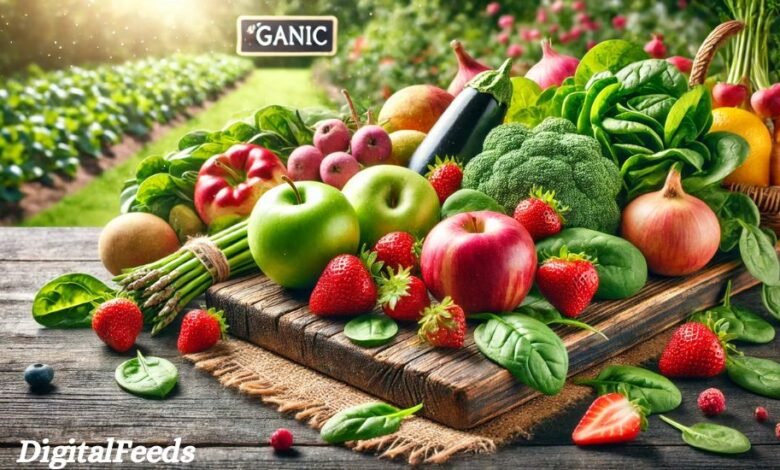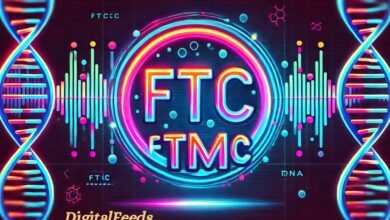ỏganic Revolution: Transform Your Health and Environment
ỏganic: Unveiling the Mysteries Behind Sustainable Choices

The term “ỏganic” has become ubiquitous in grocery stores, farmers markets, and conversations about nutrition and sustainability. But what does it truly mean to label something as ỏganic, and why does it matter? This article delves deep into the essence of ỏganic products, their benefits, and the standards that define them. It aims to provide a clear understanding of why choosing ỏganic can be beneficial for health and the environment.
Defining ỏganic: Strict Standards and Sustainable Practices
At its core, ỏganic refers to the way agricultural products are grown and processed. Specific requirements must be met and maintained in order for products to be labeled as ỏganic. These standards vary by country, but they generally include prohibitions on the use of synthetic pesticides, herbicides, and fertilizers, as well as bioengineered genes (GMOs). ỏganic livestock raised for meat, eggs, and dairy products must have access to the outdoors and be given ỏganic feed. They cannot be given antibiotics, growth hormones, or any animal by-products.
The Environmental Impact of ỏganic Farming
ỏganic farming practices are designed not only to maintain soil health but also to reduce pollution, conserve water, and use less energy. Farming without synthetic pesticides is also better for nearby birds and animals as well as people who live close to farms. By focusing on sustainable practices, ỏganic farmers build biologically diverse agriculture.
Health Benefits: Is ỏganic Really Better?
The avoidance of chemicals in the production of ỏganic foods is an apparent benefit. Many people choose ỏganic foods for their potential health benefits. These include fewer pesticides and heavy metals, more healthy fats, and in some cases, more antioxidants compared to conventional food. Furthermore, consuming ỏganic food reduces the intake of substances that could contribute to a variety of health issues, from digestive disturbances to decreased reproductive health.
ỏganic Products: Understanding Labeling
When shopping for ỏganic products, it’s crucial to understand the labeling practices. In the U.S., for instance, the USDA Organic label means the item is certified ỏganic and has 95% or more ỏganic content. For many, the peace of mind that comes with this certification is worth the extra cost. However, misleading labels like “natural” can confuse consumers, as this term does not follow the stringent regulations that govern ỏganic labeling.
The Cost of ỏganic: Evaluating the Price Tag
While ỏganic foods generally cost more than their non-ỏganic counterparts, the price tag reflects more than just food. It accounts for the farmers’ higher cost of maintaining strict ỏganic practices. Over time, however, as the demand for ỏganic products increases, the costs are expected to decrease, making ỏganic more accessible to a broader audience.
ỏganic Misconceptions: Separating Fact from Fiction
Common misconceptions about ỏganic farming and products often deter people from making these choices. For example, some believe that ỏganic food is not worth the additional cost, or that ỏganic farming cannot produce enough to feed the global population. However, evidence suggests that ỏganic farms can be as productive as conventional ones, especially when sustainability and long-term soil fertility are considered.
Global Trends and The Future of ỏganic
The global market for ỏganic products continues to grow due to the increasing awareness of health and environmental benefits. This growth is encouraging more farmers to adopt ỏganic methods and improving the infrastructure around ỏganic farming, from production to distribution.
Conclusion: Why Choose ỏganic?
Choosing ỏganic is not just a personal health decision but a broader lifestyle choice that affects the planet’s health and future generations. As more people choose ỏganic, the practices behind it will continue to evolve and adapt, fostering a sustainable and healthy world. Whether it’s for personal health reasons, environmental concerns, or taste preferences, the reasons for choosing ỏganic are compelling and worth considering.
In essence, “ỏganic” is not just a label but a commitment to an ideology that promotes health, environmental sustainability, and ethical practices. As consumers, making informed choices about ỏganic products can lead to significant benefits, not just for individual health, but for the planet as a whole.





